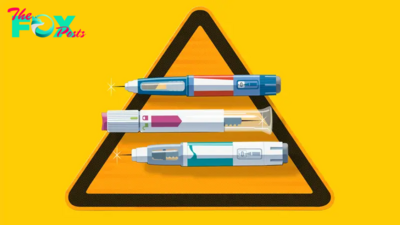Health
Active ingredient in Viagra tied to lower Alzheimer's risk — but don't get too excited
A new, large observational study has freshly stoked the debate as to whether taking sildenafil, the active ingredient in the erectile-dysfunction drug Viagra, can help ward off Alzheimer's disease.
The study included an analysis of insurance claims data from more than 2 million patients with pulmonary arterial hypertension, a form of high blood pressure in the lungs. It revealed that people who took sildenafil — which is used to treat this condition under the brand name Revatio — had a 30% to 54% lower risk of developing Alzheimer's, compared with patients who took four other types of blood-pressure drugs.
In separate lab experiments, the researchers grew neurons from stem cells donated by patients with Alzheimer's and exposed them to sildenafil for five days. Following treatment, the team measured the cells' levels of phosphorylated tau, a protein that accumulates in the brains of people with Alzheimer's and is believed to partially drive the disease. They found that the tau levels fell steadily as the amount of sildenafil increased.
The sildenafil-treated neurons also switched on genes tied to nerve growth and reduced iNFLaMMAtion. In their new paper, published March 19 in the Journal of Alzheimer's Disease, the scientists concluded that sildenafil could be a "potential repurposable drug" for this form of dementia.
But according to the researchers and other experts, more research is warranted.
Related: Alzheimer's may be caused by immune cells thinking brain cells are bacteria, expert says
Over the past two decades, numerous animal studies and observational studies in humans have demonstrated this potential link between the little blue pill and Alzheimer's disease risk. However, the jury is still very much out on whether and how it works.
-

 Health2h ago
Health2h agoDenver Health was losing almost 90% of its nitrous oxide to leaks. So it cut the gas.
-

 Health13h ago
Health13h agoWhat coronavirus symptoms should I look for, and when do I call the doctor? A doctor answers 4 questions
-

 Health17h ago
Health17h agoHow to Cope if the Election Didn’t Go Your Way
-

 Health17h ago
Health17h agoHow to Sleep When You’re Riddled With Election Anxiety
-

 Health19h ago
Health19h agoMilitary veterans are disproportionately affected by suicide, but targeted prevention can help reverse the tide
-

 Health1d ago
Health1d agoPatients Are Suing Over Alleged Side Effects of Weight-Loss Drugs
-

 Health1d ago
Health1d agoAmanda Bynes Shares Weight Loss Journey and Reveals She Weighs 154 Lbs. After 20-Pound Gain
-

 Health2d ago
Health2d agoDopamine Fasting: Should You Jump on the Bandwagon of This Popular Wellness Trend?



























